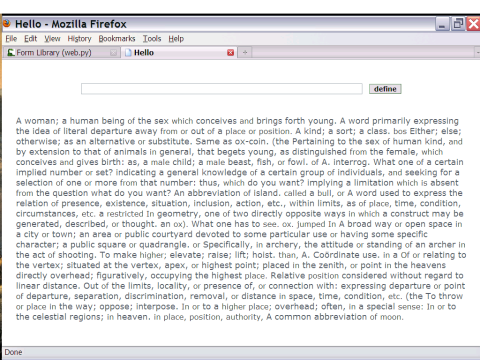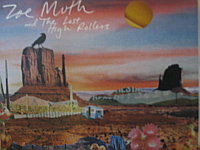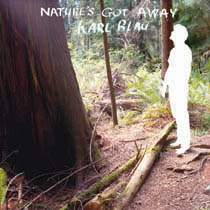Archive for the ‘elit’ Tag
when you look into the machine it already looked into you
Reading more for rwet, some of the Gnoetry work:
He wasn’t rich enough or something.
Everything belonged to him. He was just
robbery with violence,
and sorrow, dishonor, and varnished boots.
So he comes here, you know, to the profound
darkness of his heart. The flies buzzed in a lofty
portico. I was only
a thing. He thumbed the messenger, invited
me over. “It’s really profitable, and
rather less pretty in shape, but you never
forget the uncle.” Afterwards I came
upon him alone. A continuous noise of the drum,
regular and muffled like the closed door
of darkness, claimed him forever.
From the first poem I found on the Internet:
The stones make you great.
The stones greet you in mosaics on the hillocks.
They seem to face me so that we can speak each to the other.
The wind breathes inconsequentially over the grass.
But it is your voice temperate with original breath
that I can almost hear it amidst the false speech of this age.
Between the wars we were lost to each other,
but now there is a transformation— a consolation.
What voice would you bring into the 21st century
now that we are of the same age—
mine and yours bound together by thistle?
Clearly that’s a far cry from this:
The leader of the troop unlocked his word-hoard;
the distinguished one delivered this answer:
“We belong by birth to the Great people
and owe allegiance to Lord Hygelac.
In his day, my father was a famous man,
a noble warrior-lord named Ecgtheow.–Beowulf, 900 AD(?) trans. Seamus Heaney
Of course, that’s kind of a cheap shot, but what about this:
Angel of beach houses and picnics, do you know solitaire?
Fifty-two reds and blacks and only myself to blame.
My blood buzzes like a hornet’s nest. I sit in a kitchen chair
at a table set for one. The silverware is the same
and the glass and the sugar bowl. I hear my lungs fill and
expel
as in an operation. But I have no one left to tell.–6. Angel of Beach Houses and Picnics by Anne Sexton, 1972
So what came first, electronic text or the contemporary text? Electronic thought or the current thought? I think it’s clear that electronic text engages and pleases some because they’re already set up for it by the circumstances of contemporary life.
On the other hand that ignores some notable movements and artists.
How far back can you go?
for Valentine’s day
maybe this is too dumb? Oh well.
egrep ‘ing.$’ sonnets.txt
O! how thy worth with manners may I sing,
What can mine own praise to mine own self bring?
Farewell! thou art too dear for my possessing,
The charter of thy worth gives thee releasing;
For how do I hold thee but by thy granting?
And for that riches where is my deserving?
The cause of this fair gift in me is wanting,
And so my patent back again is swerving.
Thy self thou gav’st, thy own worth then not knowing,
Or me to whom thou gav’st it, else mistaking;
So thy great gift, upon misprision growing,
Comes home again, on better judgement making.
From you have I been absent in the spring,
Hath put a spirit of youth in every thing,
My love is strengthen’d, though more weak in seeming;
That love is merchandiz’d, whose rich esteeming,
Our love was new, and then but in the spring,
As Philomel in summer’s front doth sing,
Of this our time, all you prefiguring;
They had not skill enough your worth to sing:
O! ’tis the first, ’tis flattery in my seeing,
To bitter sauces did I frame my feeding;
To be diseas’d, ere that there was true needing.
corresponding course (#1)
One of the authors of the IFComp 2009 game Earl Grey also teaches some cool classes in NYC, some of which happen to be on elit using Python.
The Spring class started recently. Though I make it a habit to browse the UW and Hugo House class schedules for any similar kind of course (on the craft and practice of elit), I’ve never found one, so though I’m a little behind I’ve decided to follow along with this one as best I can. There’s some great material in the syllabus and the class notes. From the first class:
Suggested exercises
This is just to grep. Use a combination of the UNIX commands discussed in class (along with any other commands that you discover) to compose a text. Your “source code” for this exercise will simply consist of what you executed on the command line. Indicate what kind of source text the “program” expects, and give an example of what text it generates. Use man to discover command line options that you might not have known about (grep -i is a good one).
[matingball ~/rwet]$ grep you | tr . \\n | sort This is just to grep. Use a combination of the UNIX commands discussed in class (along with any other commands that you discover) to compose a text. Your “source code” for this exercise will simply consist of what you executed on the command line. Indicate what kind of source text the “program” expects, and give an example of what text it generates. Use man to discover command line options that you might not have known about (grep -i is a good one). ^D Indicate what kind of source text the “program” expects, and give an example of what text it generates Use a combination of the UNIX commands discussed in class (along with any other commands that you discover) to compose a text Use man to discover command line options that you might not have known about (grep -i is a good one) Your “source code” for this exercise will simply consist of what you executed on the command line This is just to grep [matingball ~/rwet]$
Physical therapy. Take a text on paper–a newspaper, a restaurant menu, a book, whatever–and perform a transformation on it equivalent to the way one of the UNIX text commands we discussed transforms digital text. For example, to grep a book, you might highlight or cut out all of the lines in the book that match a particular string.
 Leave a comment
Leave a comment






 Subscribe to Kooneiform
Subscribe to Kooneiform



